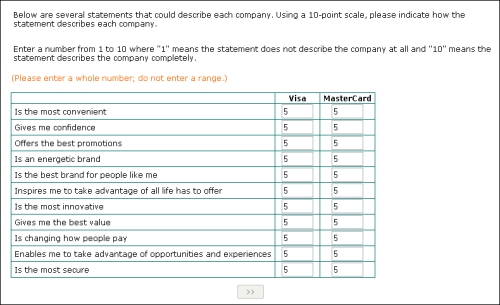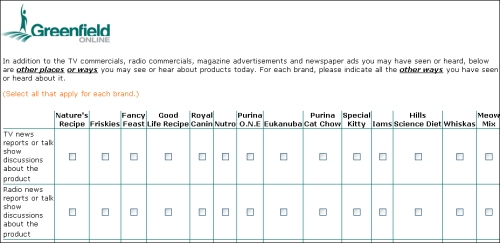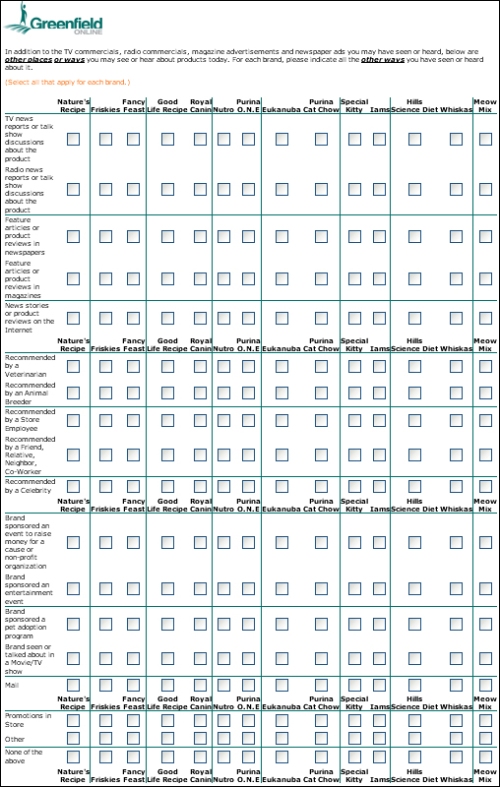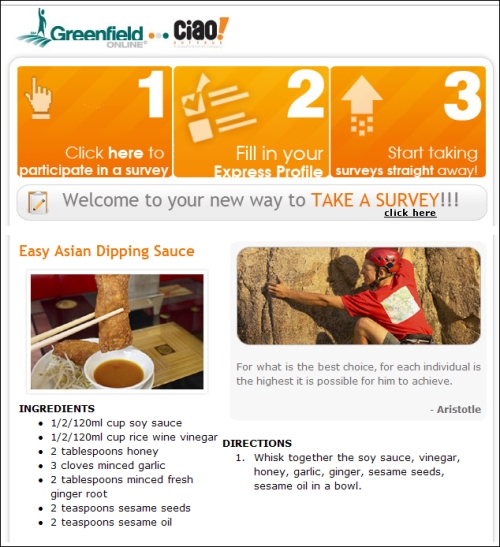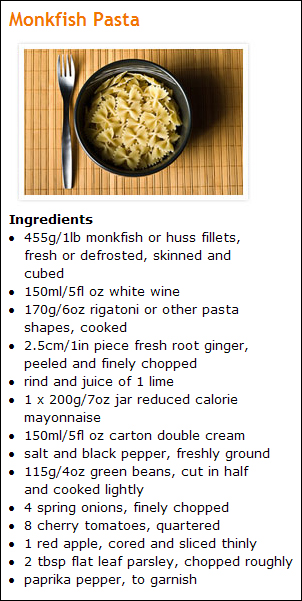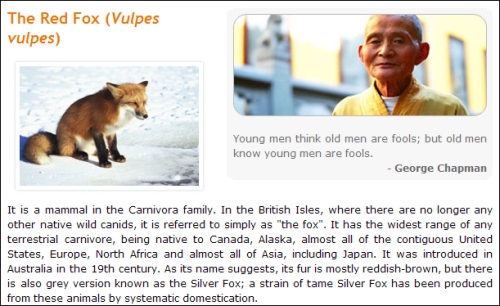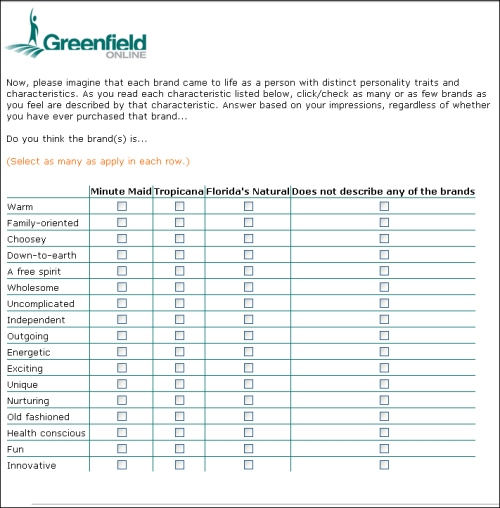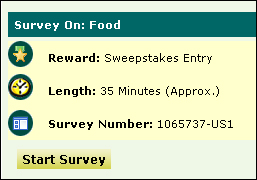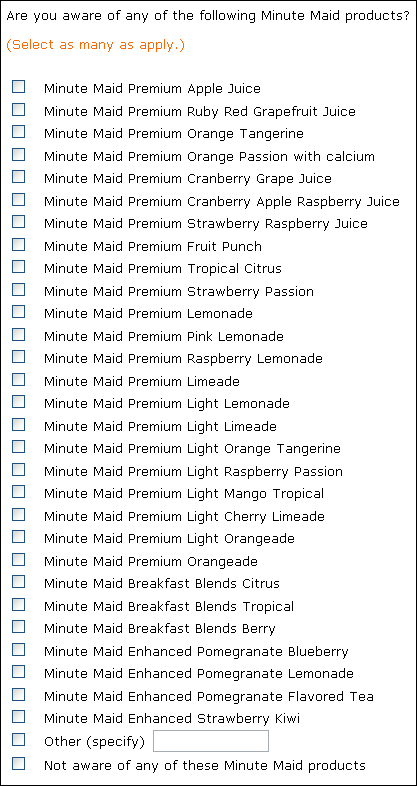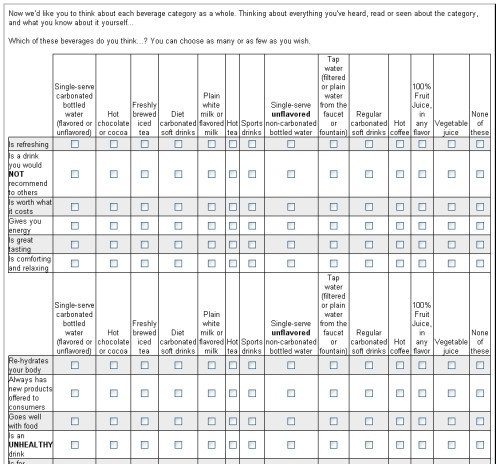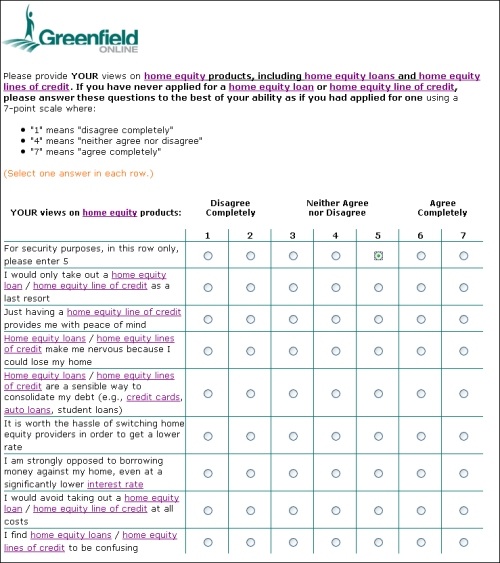Greenfield must be having trouble getting panelists to complete research these days. Maybe it’s the summer blahs, with respondents too hot, too sweaty, or just too on vacation to be bothered.
Then again, maybe it’s something to do with people just getting sick of trying to imagine their orange juice has come to life and is displaying personality traits.
In any case, I’m sure this is the answer:

50 cents per survey! At 20 minutes per survey, that’s like, $1.50 an hour! This will totally solve all of Greenfield’s problems, and can only lead to amazing data quality.
Right?
But let’s turn this repetitive Greenfield mockery into a real question: what are the odds that this sort of incentive (and incentives in general, really) has already led to or soon will lead to the market research version of “gold farming?”
Gold farming, if you don’t want to bother reading the Wikipedia entry, is an exploit carried out within massive online role-playing games, like World of Warcraft. I’m no expert in it, but as I understand it, people hire low-wage workers (this has apparently been an issue in China) to sit in front of multiple computer terminals logged into the online game. The workers don’t actually play the game as it’s intended to be used, but they instead perform repetitive actions, generally using automated scripts, to earn (or, colloquially, to farm for) in-game cash — virtual money, essentially, that can be spent on in-game items like better weapons and the like. The folks behind the operation then sell the virtual currency online, to actual players of the game who want to buy a really cool sword or whatever but who can’t be bothered spending weeks building up the in-game cash to buy it.
So, since Greenfield is paying 50 cents for 20 minutes worth of human labor here, it occurs to me that someone has probably already figured out that they write some scripts to blast through these things in (let’s say) five minutes each — 12 per hour, as opposed to 3 per hour. And that’s per computer. So you sit a guy in front of five screens, each logged in on a different Greenfield account, each earning $6 an hour — so $30 an hour across those five screens — you know, if your labor only needs to make around $3 an hour, that’s $216 a day in pure profit for the guy in charge. And that’s assuming he’s only got one guy doing this on only five accounts at once.
Now, I’m sure I can’t be the first person this sort of thing has occurred to, and I’m sure Greenfield and the other panel outfits are trying their hardest to make this impossible, limiting the number of surveys one respondent can complete in a day, maybe checking for a total elapsed time and invalidating surveys that move too quickly — but, I don’t know, that strikes me as sort of being similar to making the roads near the bars really wide and straight instead of outlawing 24-hour happy hours, or some similarly goofy comparison.
If we want honest answers from real people, maybe we should rethink this entire insulting “we’ll pay you fifty cents to answer 120 repetitive questions about the minute differences between four brands of orange juice” business model.
